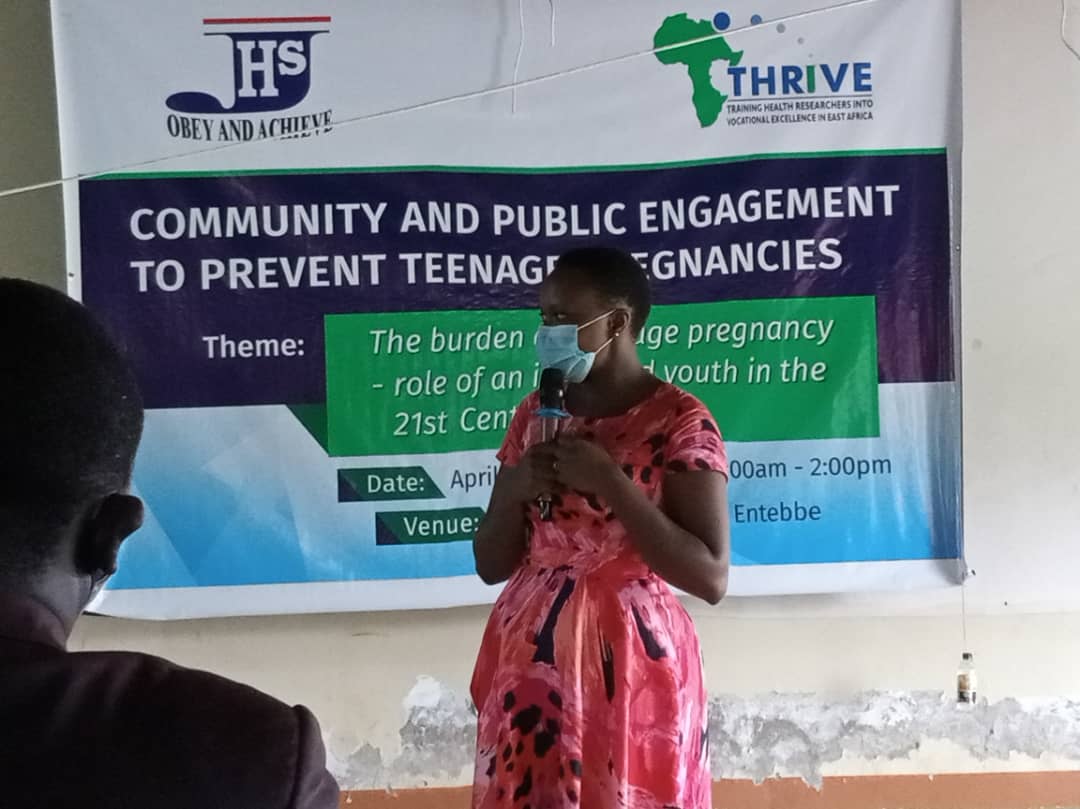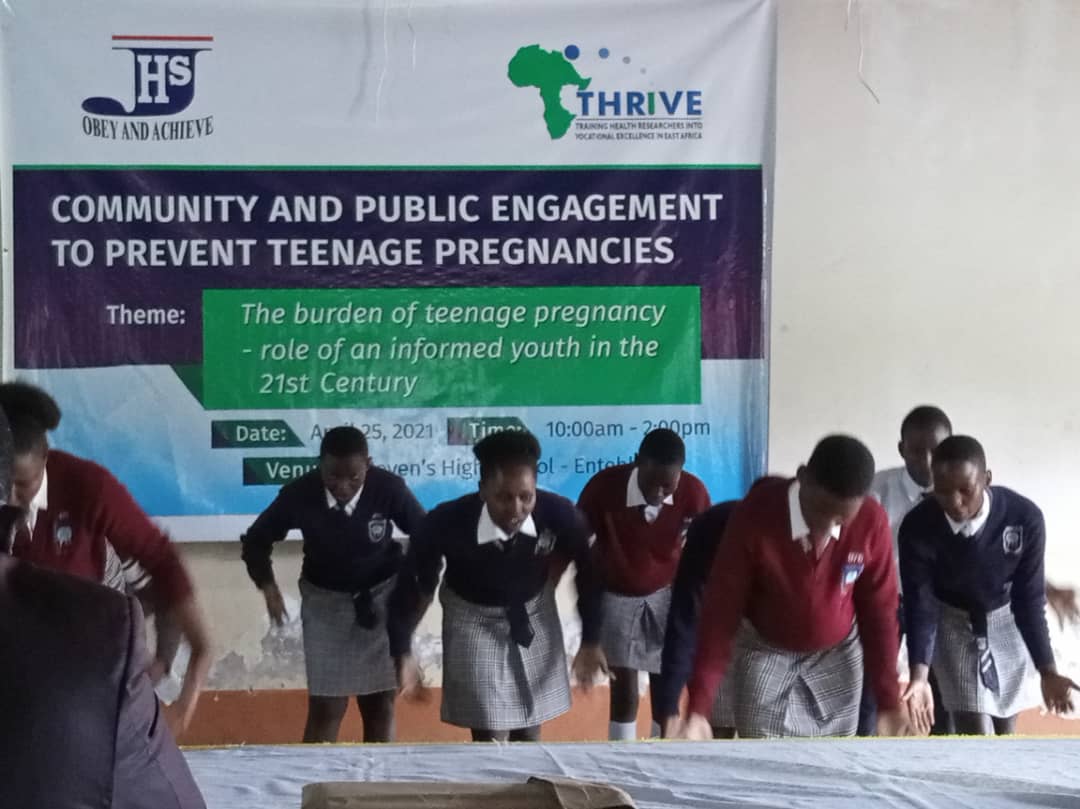
KAMPALA — Talking about sexual, teenage pregnancy and reproductive health is not easy, especially in the conservative corner of Uganda. But Dr. Susan Atuhaire, a Ph.D researcher working with students of Jovens High School in Entebbe found a powerful way to address the issue: poetry, drama and songs.
Using a student-centred approach, Dr. Atuhaire, a practicing gynecologist says school teens are able to come up with an approach suitable for their peers in addressing teenage pregnancies among risky behaviors.
Quoting statics from recent surveys, Dr. Atuhaire told reporters at a community engagement event held at Jovens High School in Entebbe on weekend that over 53% of the pregnancies in teens are unintended —sparking information gap concerns.
“We are using a student-centered engagement approach where we have the students coming up with different modes of how they can pass on this information to the rest of the other students,” she explained, noting that, “We targeted schools because these are teenagers we could access in one place”.
Dr. Atuahire, whose Ph.D. research is being funded by THRiVE (Training Health Researchers into Vocational Excellence in East Africa) says the approach seeks to address four (4) major areas of concern; drivers/causes, consequences, prevention of teenage pregnancies and sources of correct information for teens.
Whereas her primary Ph.D work is on women with a complete abortion complications, her project with Jovens High School looks at the prevention arm.
“We know that a quarter of the births that we have in our country (Uganda) is among teenagers and we know that this group of girls have a very high chance or risk of getting pregnancy associated complications,” he said, adding that “We have to look at how we can prevent them from getting these unintended pregnancies or getting into risky behaviors”.
In this way, the girls’ message makes them ambassadors of correct information about teenage pregnancies in the country.
Teenage pregnancy rates are staggeringly high in Uganda. According to the country’s 2016 demographic and health survey , nearly a quarter of girls aged 15 to 19 have had a baby or are pregnant.
Many drop out as a result; secondary school enrolment rates are lower among girls than boys— with the country registering one of the highest rates of child marriage in the world.
Ms. Moreen Namuyomba Kityo who heads the counseling arm of the Entebbe-based school commended the student-centered engagement approach introduced by Dr. Atuhaire.
She said many teens are interested in music, noting that the approach was very timely.

This is a better way of passing on information to the teens, because they find it interesting, and many pick from what their peers have said, she said.
“Many young girls find themselves in difficult situations because of the lack of information,” she said tasking schools to step in and give this knowledge.
Parents often fail to discuss sexuality and health with their children, and, at school, “we are only given partial information,” said Andrew Arthur Mudhasi, a S.6 leave who actively coordinated the project.
“We have devised means of spreading this information out in communities and neighborhoods through skits, drama, poems and different literature written out,” he said, advising his peers is to be patient with sexual behaviors.
Another student who participated in the project, Patricia Nalule tipped fellow teenagers to abstain from premarital sex.
“I learned that I have to work hard. I must not get distracted or drop out of school,” said 18-year-old Nalule. “I also learned that girls can do anything they want to do.”






